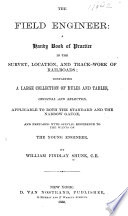 | William Findlay Shunk - Railroad engineering - 1880 - 362 pages
...power of a number is equal to the logarithm of the number multiplied by the exponent of the power. The logarithm of any root of a number is equal to the logarithm of the number divided by the index of the root. 0. The preceding principles enable us to... | |
 | James Hamblin Smith - 1883 - 466 pages
...4-4557736 which is the logarithm of 28561, the number required. 458. The logarithm of any root of a numbcr is equal to the quotient arising from the division of the logarithm of the numbcr by the numbcr denoting the root. Let m = a". 1 " Then — ss :. logara'=' . log.m. » Tims the... | |
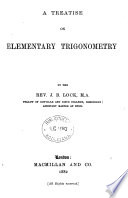 | John Bascombe Lock - 1882 - 378 pages
...index denoting the power. (iv) The logarithm of the root of a number is equal to the result of dividing the logarithm of the number by the number denoting the root. Let m and n be any two numbers. Let h and k be their logarithms to any base a. So that loga m = h, loga n... | |
 | Henry Law - 1884 - 568 pages
...or, the logarithm of the nthpowerof m, is equal to n times the logarithm of m. PROPOSITION P THEOREM. The logarithm of any root of a number, is equal to the logarithm of that number, divided by the exponent of the root. Let X = logj, m, then m = 6X ; let the... | |
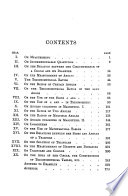 | John Bascombe Lock - Trigonometry - 1885 - 368 pages
...index denoting the power. (iv) The logarithm of the root of a number is equal to the result of dividing the logarithm of the number by the number denoting the root. Let m and n be any two numbers. Let h and Tc be their logarithms to any base a. So that logam=A, logan=/fc... | |
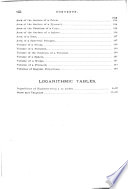 | Charles Davies, Adrien Marie Legendre - Geometry - 1885 - 538 pages
...indicated by r, of both members of (4), we have whence, by the definition, - = log \?m. (9.) That is, the logarithm of any root of a number is equal to the logarithm of the number divided by the. index of the root. The preceding principles enable us to abbreviate... | |
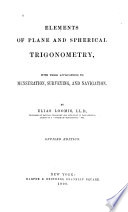 | Elias Loomis - Trigonometry - 1886 - 436 pages
...the seventh power of 0.8952. В EVOLUTION BY LOGARITHMS. 15. It is proved in Algebra, Art. 399, that the logarithm of any root of a number is equal to the logarithm of that number divided by the index of the root. Hence, to extract the root of a number by... | |
 | Charles Ambrose Van Velzer, Charles Sumner Slichter - Algebra - 1888 - 234 pages
...Consequently nf=af*. Therefore, by definition, \og,,nf=pr That is, logan>=p log,,«. (c) 10. THEOREM. The logarithm of any root of a number is equal to the logarithm of the number divided by the index of the root. Let n be any number, and let loga n—x.... | |
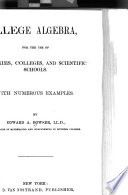 | Edward Albert Bowser - Algebra - 1888 - 868 pages
...log m ; then m = a*. Therefore m" = (a1)" = a** ; whence by definition, log mp = px = p log m. (7) The logarithm of any root of a number is equal to the logarithm of the number divided by the index of the root. For let x = log m ; then m = a1. 1 1 X Therefore... | |
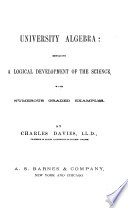 | Charles Davies - Algebra - 1889 - 330 pages
...both members of ( 3 ), denoted by r, we have, Whence, by definition, * = Log ym . . . . (S.) That is, the logarithm of any root of a number is equal to the logarithm of the number divided by the index of the root. The applications of the above principles... | |
| |